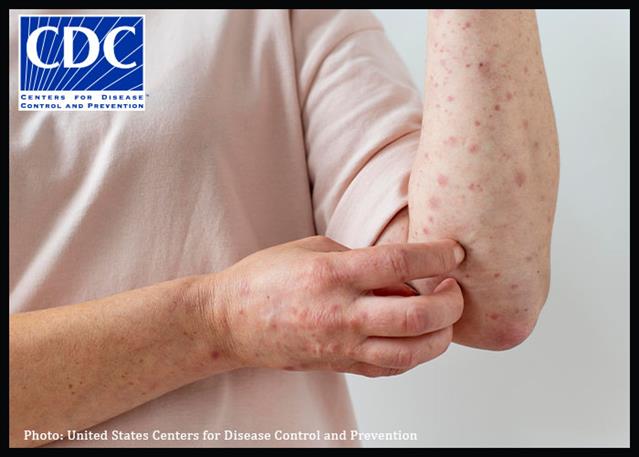
According to the Centers for Disease Control and Prevention or CDC, so far a total of 64 measles cases have been registered nationwide, more than a total of 58 cases reported for all of last year.
The CDC describes measles as a “highly contagious viral illness” that “can cause severe health complications, including pneumonia, encephalitis or inflammation of the brain, and death, especially in unvaccinated persons.”
Measles is spread through air or contact and can cause symptoms like mild to moderate fever, runny nose, cough, and red and watery eyes.
As of March 12, Florida has reported a total of 10 cases, whereas Illinois has reported 12 cases in Chicago as of March 14, mainly from the migrant shelter in the city’s Pilsen neighborhood.
Arizona and California have reported four cases, Washington reported six cases, Michigan and Minnesota reported three cases, and Louisiana and New York reported two cases.
Earlier, Pennsylvania reported nine cases in January, but after February no new cases were reported.
Meanwhile, Georgia, Indiana, Maryland, Missouri, New Jersey, Ohio and Virginia have reported one case each.
Speaking about the spread of measles, Jesse Ehrenfeld, the president of the American Medical Association, said that, “the rate of vaccinations against measles in the U.S. has declined since 2019 — putting more people at risk of illness, disability and death.”
Ehrenfeld noted that a lower vaccination rate in the 2022-2023 school year had put approximately 250,000 kindergartners at risk for measles infection.
The health regulator urged the healthcare providers and early childhood education providers to make sure that students receive measles, mumps and rubella or MMR vaccines. Children are advised to receive two doses of the MMR vaccine, with the first administered between 12 and 15 months of age, and the second between 4 and 6 years old.
According to CDC, a full two-dose MMR vaccination proves to be 97 percent effective against measles.
Copyright © 2024, RTTNews.com, Inc. All Rights Reserved.















